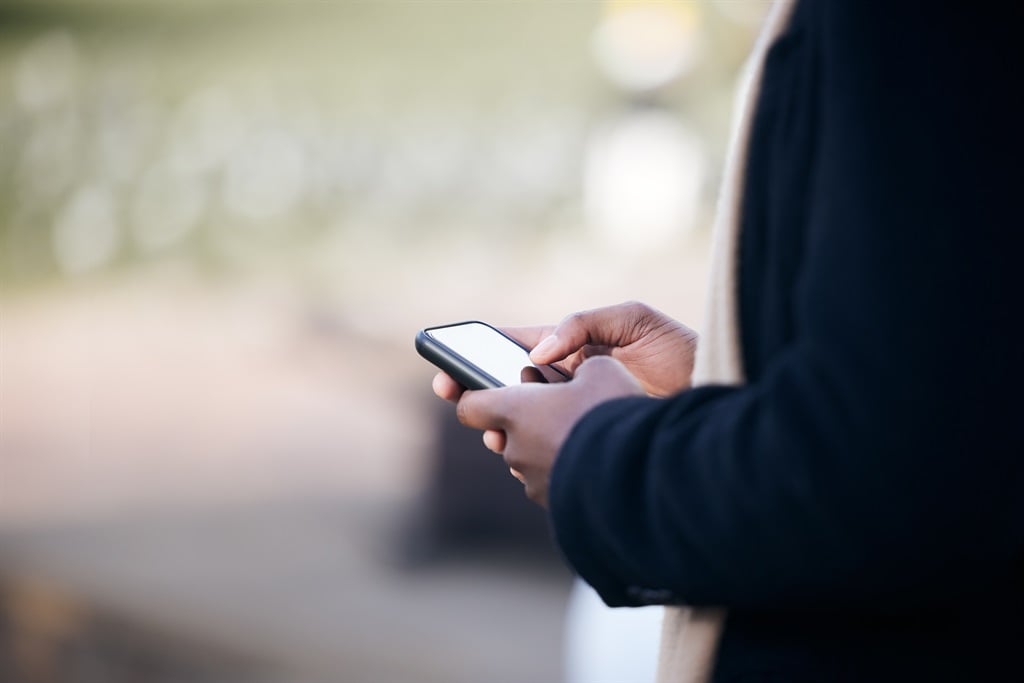
South Africans can't live without their smartphones. (Courtesy)
- South Africans are extremely attached to their smartphones, with over 40% preferring to endure traffic jams rather than spend an hour without their smartphone.
- Smartphones are seen as essential tools that improve users' lives, providing benefits in terms of economy, mobility, health, entertainment and safety.
- 70% of users report that using their smartphones at work has increased their productivity, and the integration of AI is further enhancing smartphone capabilities.
- Want more lifestyle news? News24 Life top page.
Thanks to the digital world we live in, having a smartphone in our hands for most of the day has become a normal part of everyday life.
But just how bad is smartphone addiction in South Africa?
A recent consumer smartphone usage survey conducted by Adoozy, a South African mobile phone power bank provider, reveals that South Africans absolutely love their smartphones.
More than 40% of participants said they would rather sit in traffic and endure the frustration than spend an hour without their phone.
About 16% of people said they would rather go without their phone than endure the pain and trauma of going to the dentist. Heavy smartphone use shows that there's a fine line between addiction and the real need and convenience of a smartphone.
Adoozy CEO Kegan Peffer believes the increased use of smartphones plays a major role in improving South African lives, saying smartphones add immense value in terms of the economy, mobility, health and wellness, entertainment and safety.
Read | An entertainment dashboard at your fingertips: Why LG's QNED TV is captivating young mothers
“Young people in South Africa in particular get a lot of flak for the amount of time they spend on their mobile phones. Of course, smartphones need to be used responsibly, but people are very aware that modern mobile phones can enhance and add value to everyday life.”
“For example, in countries where crime and violence against women are prevalent, our survey found that 72 percent of respondents answered 'yes' to the question, 'Have you ever used your mobile phone to escape a dangerous situation?' This is a potentially life-saving benefit,” he said.
Peffer added that smartphones go beyond entertainment to help users track their health and handle financial transactions safely.
“South African consumers use their smartphones every day to send money, bank, make payments, buy groceries, hail rides, get around and get their work and business done efficiently. They also use their smartphones to monitor their health with apps such as fitness trackers,” he said.
This is circleWhat South Africans use their mobile phones for
According to the survey, 49.5% use their devices for banking transactions, 23.6% use them to order rides on e-hailing platforms, while around 19% say they use them for GPS navigation, followed by food ordering platforms.
According to respondents, smartphones are not only part of their banking and health management, but also serve as productivity tools.
Nearly 70% said using a smartphone for work-related activities makes them more productive, and 63% said they use their smartphone for work.
Only 29% said they “sometimes” use their phones for work. Additionally, about 35% said they “often” use their phones for Zoom or Teams meetings, while 50% said they do so occasionally.
“For work-from-home corporate employees, busy executives, on-the-go entrepreneurs and the self-employed, the smartphone is a game-changer. In an economy where entrepreneurs and small businesses are the future, the smartphone is an office in your pocket or handbag.”
“As AI becomes more integrated into smartphones, its capabilities will only improve. For example, the International Computing Technology Industry Association released statistics in February this year showing that 97% of mobile users are already using an AI-powered voice assistant,” he said.
Additional findings from the study:
- 74% of respondents use their phone for physical and mental health, including fitness trackers, heart rate monitors, blood pressure checkers and meditation apps.
- When it comes to communicating with others, 55% prefer to use instant messaging apps such as WhatsApp, 22.5% prefer direct messaging on social media (such as Facebook or Instagram), and 21.3% prefer phone calls.
- 65.2% of respondents prefer voice notes, while 19.1% say they “can't resist” them. The most commonly used app is Uber (29.2%), followed by Eskom Se Push (25.8%), Takealot (13.5%) and Checkers Sixty60 (11.2%). Amazon recently entered South Africa, so it's expected that their app will start to gain popularity there as well.
- Respondents cited social media as the most important use of their mobile phones, followed by work, news, entertainment and games.
- 59.5% of respondents said they “sometimes” found themselves in a situation where their mobile phone would not turn on and they had no way to charge it, while 12.4% said they “frequently” found themselves in this situation.

